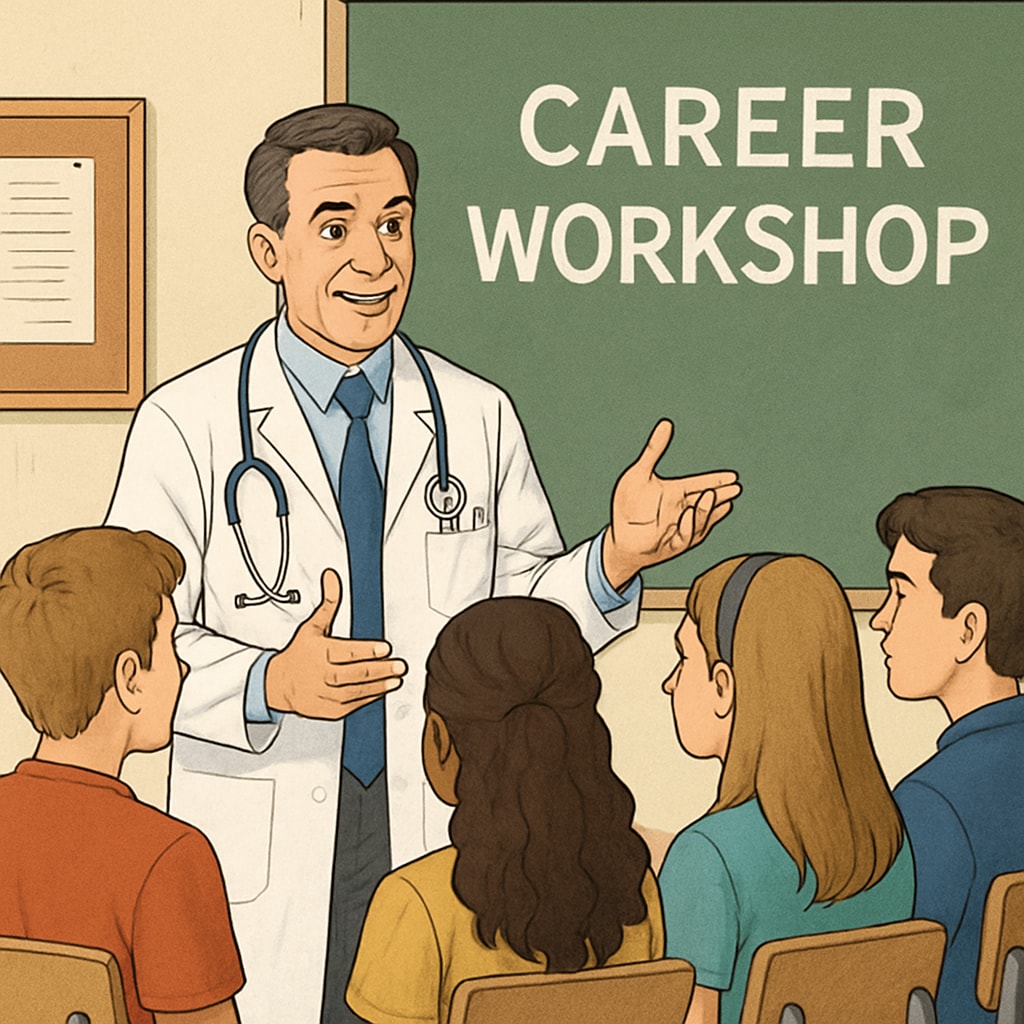Understanding “doctor interviews, career planning, medical education” is crucial for students aspiring to pursue medicine. Career interviews allow young learners to explore the realities of the medical profession by engaging directly with experienced practitioners. This method not only helps students gain valuable insights but also shapes their aspirations and career choices through informed discussions. In this article, we present a structured approach to designing effective medical career interview guides tailored for K12 students.
Why Medical Career Interviews Matter
Medical career interviews serve as a bridge between academic interests and professional realities. For K12 students, these interviews provide an opportunity to directly interact with doctors and other healthcare professionals, enabling them to understand the complexities, rewards, and challenges of the field. Such experiences can be transformative, offering clarity on whether the medical profession aligns with their personal goals and values.
Moreover, these interviews encourage critical thinking and decision-making skills. By asking insightful questions, students can uncover the realities of medical education and practice, from the rigorous training process to the emotional aspects of patient care. As a result, they gain a comprehensive view of what it takes to succeed in medicine.

Building an Effective Interview Framework
Designing a successful interview guide requires careful planning and attention to detail. Here are the key components to consider:
- Preparation: Students should research the medical profession and the specific field of the interviewee beforehand. This ensures they can ask meaningful and informed questions.
- Question Categories: Organize questions into categories, such as education, daily responsibilities, challenges, and rewards. This structure keeps the conversation focused and comprehensive.
- Open-Ended Questions: Encourage students to use open-ended questions to invite detailed responses. For example, “Can you describe a memorable patient interaction and how it affected you?”
- Follow-Up: Emphasize the importance of follow-up questions to delve deeper into specific topics that arise during the discussion.
By using this framework, students can maximize the value of their interviews and gain actionable insights into the medical profession.

Sample Questions for Medical Career Interviews
Here is a curated list of questions to help students guide their conversations:
- Education: What inspired you to pursue medicine? Can you describe your journey through medical school and specialized training?
- Daily Responsibilities: What does a typical day look like for you? How do you balance administrative tasks with patient care?
- Challenges: What are the most difficult aspects of your job? How do you cope with stress or emotional challenges?
- Rewards: What do you find most fulfilling about your career? Can you share a moment when you felt particularly proud of your work?
- Advice: What advice would you give to students aspiring to enter this field? Are there specific qualities or skills they should develop?
These questions provide a comprehensive starting point for students to explore various facets of the medical profession.
The Long-Term Benefits of Career Interviews
Engaging in medical career interviews offers long-term benefits for students. It helps them make informed decisions about their future, navigate the complexities of career planning, and develop a realistic understanding of the profession. Additionally, these interviews foster essential communication skills and professional curiosity, which are invaluable in any career path.
For educators and parents, facilitating these interviews can be a powerful tool to guide students toward their aspirations. By creating opportunities for meaningful dialogue, they help young learners navigate their journey toward becoming future physicians.
Readability guidance: Use short paragraphs and structured lists to present key points clearly. Limit passive voice and ensure a balanced use of transition words like “however,” “for example,” and “as a result.” Place images strategically to complement the text.


